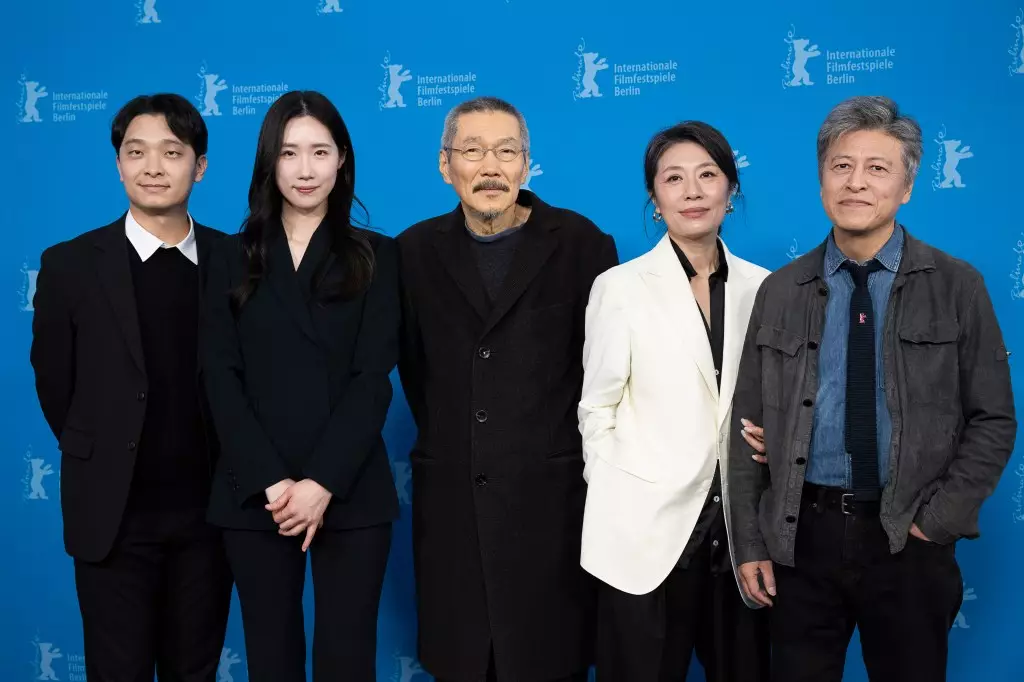Kwon Hae-hyo’s career, spanning over three decades, is a testament to the transformation of the Korean film industry from its regional roots to a global cinematic force. The veteran actor has not only witnessed this evolution but has also played an integral role in it, collaborating with prolific filmmakers, most notably with Hong Sang-soo. This collaboration has not only enriched his career but has also contributed significantly to the unique storytelling that defines contemporary Korean cinema.
In reflecting on his extensive career, Kwon frequently emphasizes the importance of organic storytelling. He has appeared in prominent films like “Train to Busan: Peninsula,” and “Juror 8,” but it is his continuous collaboration with Hong Sang-soo that stands out. Their synergy has produced twelve films together, a relationship that allows Kwon to delve deeper into character studies that highlight the complexities of human experience. This partnership illustrates how Kwon has melded his artistry with Hong’s signature filmmaking style, transforming challenges into profound artistic statements.
Kwon’s admiration for Hong Sang-soo extends well beyond their professional collaboration; he is genuinely inspired by the director’s unconventional methods. Unlike traditional filmmaking processes that often dictate the actor’s performance ahead of time, Hong’s approach provides Kwon with a sense of liberation and spontaneity. “Shooting under such uncertain circumstances makes every scene a new discovery,” expresses Kwon, highlighting that his experiences with Hong are devoid of the rigid confines of conventional narrative structures.
The premise of Hong’s latest work, “What Does That Nature Say to You,” is a reflection of this philosophy. Through the eyes of a young poet, viewers are thrust into a scenario wherein character dynamics are organically shaped as they navigate prolonged dialogues and interactions. Kwon’s character, the father of the poet’s girlfriend, becomes a vessel for exploring authentic family relationships, established through seemingly mundane moments. This narrative richness enables both the actor and audience to immerse in an experience that resonates on multiple levels.
Part of the allure of working with Hong includes the unique practice of providing scripts only on the day of shooting, a technique that Kwon appreciates yet acknowledges can be daunting. The pressure typically associated with delivering a performance is mitigated by the on-the-spot nature of the script handover. Kwon notes, “This atmosphere allows actors to approach scenes without the weight of expectations, as we live in the moment rather than being bogged down by preconceived notions of how the scene should be played.”
However, contrary to what one might assume about spontaneous filmmaking, Kwon clarifies that Hong’s films are rigorously scripted. The reality of their production process reveals an interesting paradox: while dialogues may appear improvised due to their organic delivery, they are, in fact, meticulously crafted. Kwon sheds light on this, stating, “For every long take, often exceeding 15 minutes, we are required to be precise with our lines, revealing the depth of preparation that goes into each take.” This emphasis on authenticity coupled with precision underscores the artistic integrity present in Hong’s filmmaking.
Maintaining Perspective in a Competitive Landscape
In an industry rife with competition, Kwon emphasizes the importance of balance and perspective, which he attributes to his involvement with various causes outside of acting. He notes that engaging with non-governmental organizations (NGOs) keeps him grounded. “Being part of a larger societal context helps me maintain my identity beyond simply being an actor. It enriches my life and ultimately my performances,” he shares. This distinctive viewpoint has enabled him to navigate the constantly shifting tides of the entertainment industry, keeping him relevant and active for over 30 years.
As Kwon reflects on his journey, he acknowledges that the increasing talent pool in Korean cinema compels him to continually evolve without attempting to imitate others. “My focus has always been on authenticity rather than differentiation,” he explains. This ethos defines his work and marks a noteworthy aspect of his longevity—a commitment to remain true to his essence during the inevitable changes that Hollywood and Korean cinema undergo.
Kwon’s insights regarding the evolution of the Korean film industry are sharply cognizant of the socio-political dynamics that have shaped its trajectory. He posits that the rise of vital directors—like Park Chan-wook, Bong Joon-ho, and Hong Sang-soo—is intertwined with the broader societal shifts post-authoritarian rule. Kwon articulates a central tenet of Korean cinema: “Our films must reflect societal truths rather than fantasies. It is crucial to engage with the reality of our lives and the lives of others.”
In this sense, Kwon embodies the essence of Korean cinema as both an artist and a commentator, advocating for narratives that connect with the cultural psyche and foster a deeper understanding of human conditions. His career is not just a chronicle of personal achievement but a mirror reflecting the overarching evolution of a vibrant and resilient industry, poised to enchant global audiences even further.
